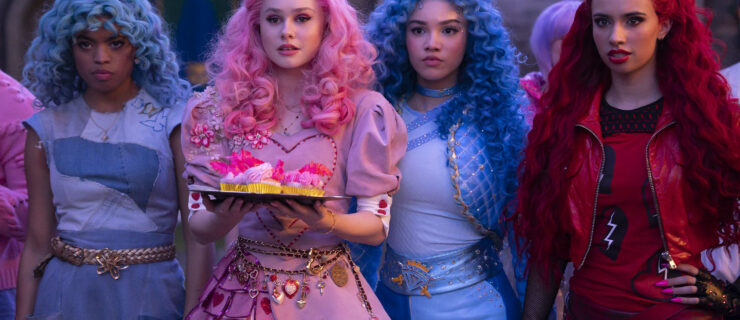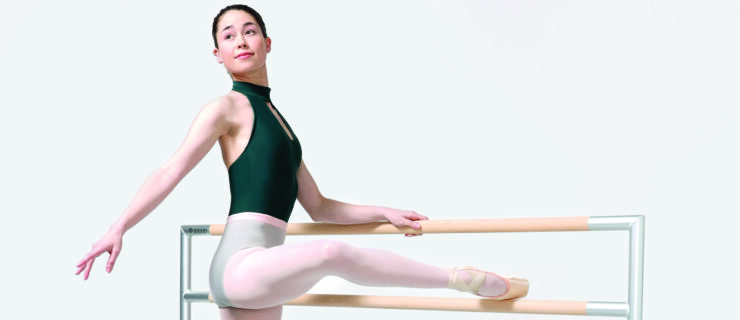Say My Name: The pros and cons of taking a stage name
Stage names give artists a measure of control over the way directors, agents and the public perceive them. So should you leave your birth name behind or stick with what your parents gave you?
DS investigates.
The unforgettable krumper Miss Prissy first made a name for herself in David LaChapelle’s 2005 documentary Rize. Now she has a reel that’s as long as Highway 5. Born Marquisa Irene Gardner, Miss Prissy earned her nickname in high school. “Everyone teased me because I was a girl from South Central, but I was so dainty and girly,” Miss Prissy remembers. “They used to say all I needed was a teacup and some doilies.”
When Miss Prissy began booking gigs, she decided to keep the name. “I turned it into a Clark Kent–meets–Superman thing. Marquisa is the girl who’s a regular, married woman and mother,” she explains. “Miss Prissy is the superhero. She’s as forceful as a man, and she’s as soft and gentle as a female. I thought the name fit well.”
There are many reasons to adopt a stage name—entertainers have been doing it since the golden days of Hollywood. Perhaps like Miss Prissy’s, your nickname has personal meaning and indicates something about your style. Maybe you’re looking for a name that is easier to pronounce or you want something unique and unforgettable. “It comes down to identity, and each person has to be responsible for what that identity is,” says Terry Lindholm, an agent at McDonald/Selznick Associates in Los Angeles.
What you don’t want is a stage name that will get you noticed for the wrong reasons. (Ahem: Remember Mr. Sex auditioning for “So You Think You Can Dance” during the past three seasons—and Nigel’s command that he never return?) Before you cast off your birth name in search of something with more star power, here is what you should consider.
The Legacy
Stage names have a long and glorious tradition in dance. A beautiful-sounding name can stick in a person’s mind for a lifetime. Imagine if legendary British ballerina Margot Fonteyn had kept her birth name—Peggy Hookham. How about George Balanchine’s muse, Suzanne Farrell, who was born Roberta Sue Ficker? Broadway and ballet choreographer Jerome Robbins was born Jerome Rabinowitz. Cyd Charisse? Tula Ellice Finklea! Even Fred Astaire changed his last name, from Austerlitz.
Why did these glorious stars of screen and stage create new names for themselves? For Farrell, it was about her classmates, who teased her and called her “Bobby Sue.” Others aimed to simplify their names.
There are, of course, exceptions. In the nascent stages of Western ballet, it was common to adopt Russian stage names, because Russians were the most elite ballet dancers at the time. A Russian-sounding name carried status and authority. For example, when Charisse danced with the Ballets Russes, she used the names Maria Istomina and Felia Sidorova!
Deciding to Change
So what does this mean for you? If you have a very ethnic name but can dance a broad range of parts, you may want something more neutral, to avoid being pigeonholed. For instance, if you audition for the role of Maria in West Side Story—and you can pull off a Puerto Rican look even though your last name is Dimovitz—you don’t want to get dismissed before you’ve had a chance to show your talent. On the other hand, an ethnic last name can work to your advantage. It’s all about who you want to be.
Sometimes a funky name can be good. Dylan G-Bowley, who dances with the Trey McIntyre Project, decided not to change his name, even though it has an unusual and often confusing spelling. His parents created “G-Bowley” from his mother’s maiden name, Genovese, and his father’s surname, Bowley.
“I love it. It’s interesting and gets people’s attention, but it does cause problems,” says G-Bowley. “For one thing, computers don’t like it. Most programs won’t accept the hyphen, so I become ‘Gbowley.’ ”
In some cases, a name that matches your personality can make you memorable. Brooklyn Lavin of Clear Talent Group points out that one of her clients, Mr. Lucky, has had a lot of success with his name. “People love that he calls himself Mr. Lucky, because he has such a fun personality,” she says.
For women who get married, Lindholm says there are advantages to both retaining your maiden name or adopting your husband’s. “Sometimes a dancer says, ‘It’s a new way for people to look at me. It’s a new approach to myself.’ Maybe you might get an extra look,” says Lindholm. “But if you’ve built a tremendous reputation on your name and people know you, then my personal opinion is, don’t mess with what works.”
Stage names also come in handy if you have the same birth name as a celebrity or another dancer, which can be confusing for casting directors. The last thing you want is to be mistaken for someone else!
All name changes must be registered with the Screen Actors Guild (or whichever union represents you). If checks are cut to your stage name, you’ll need to alert your bank, as well. Typically they require you to show your union card.
Choices, Choices!
A stage name is like a screen name: Once you choose one, it’s a good idea to stick with it so fans and casting agents don’t get confused. So how do you come up with a name that you’ll continue to like as you grow?
Farrell found hers by flipping through the Manhattan phonebook! Think about any nicknames you have, or words that paint a vivid picture of who you are as a dancer and artist. Talk to your family about places or names of relatives that have special significance. Or make a small adjustment, such as using your first and middle name, or your middle and last name.
“A good stage name is something that’s not harsh on the ears,” says Miss Prissy. “You want to keep it friendly.”
For urban dancers, it’s more common to receive a name as a sign of respect and acceptance. Alex Welch, aka B-Girl Shorty, earned hers when she was 12 years old. “Each B-boy/B-girl has to earn their name, and you’re being acknowledged as being worthy of being a B-boy/B-girl when you receive it,” she says. “Also, your name becomes your trademark, so it should fit the individual’s physical, psychological or technical characteristics. In my case, I was, and still am, diminutive!”
Whatever you decide, it must be a natural fit. Otherwise you’ll seem foolish. “If you can’t pull it off, no one else will buy it. If you are the quintessential caucasian girl from the Midwest and you change your name to something ethnic, people aren’t going to believe that,” says Lindholm.
“Finding out what’s unique about yourself is crucial, but you have to be aware that whatever you do to manipulate that vision of yourself should be something that you believe in and are fully behind.”
If changing your name will give you more confidence, change away! But in the end, it’s still about who you are as a dancer. Says Lavin: “Ultimately, it’s going to come down to your talent and the way you dance.”
Click here to find out what
your stage name should be!
Photo: Andrew Zuckerman



